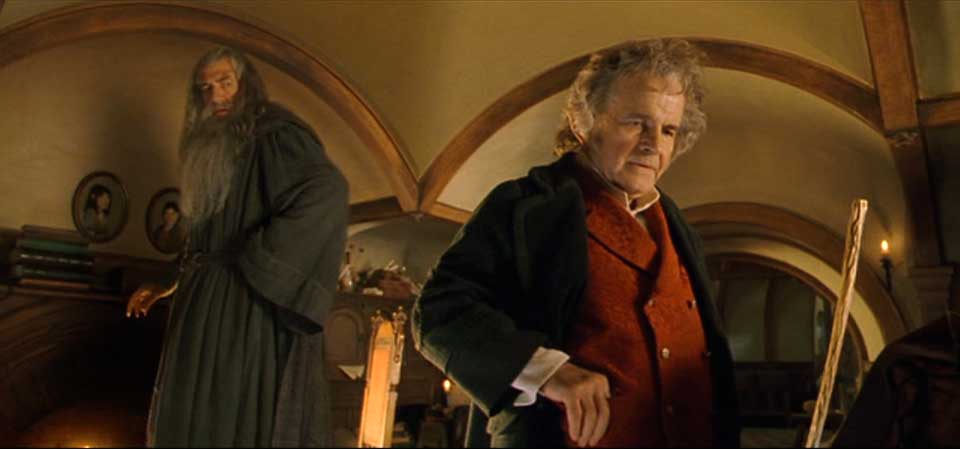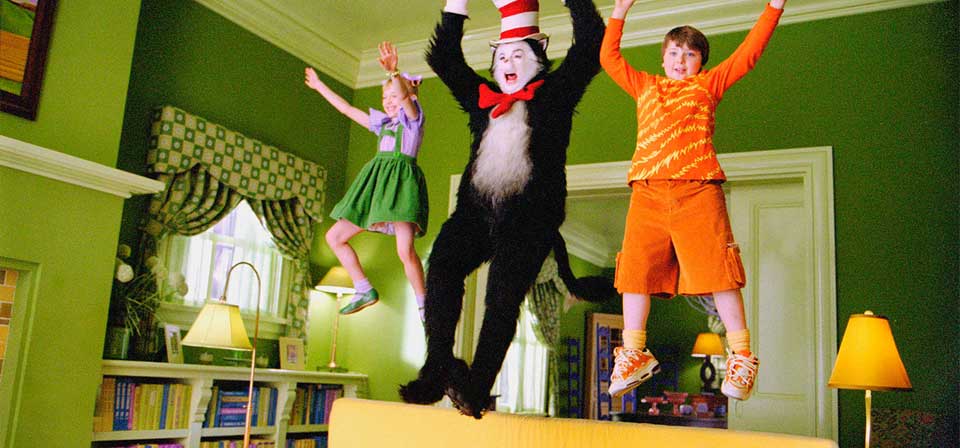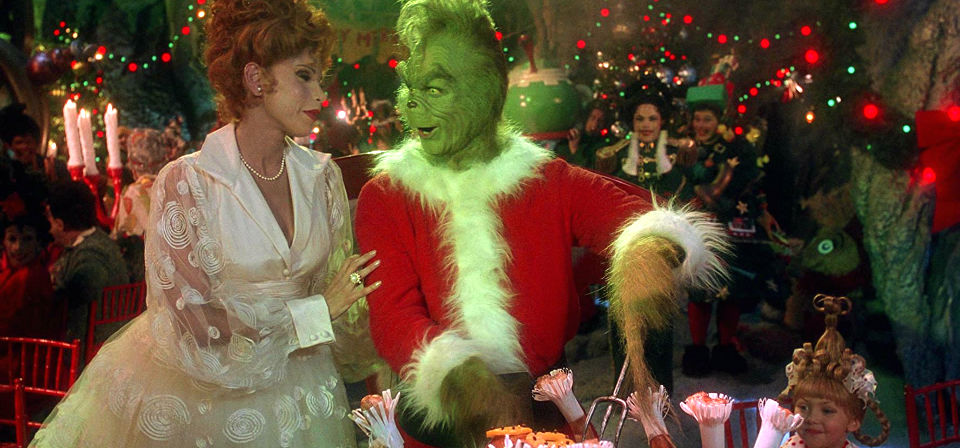Reviews
Elf (2003)
(Written by Jimmy Akin) Elves love to tell stories, or so Papa Elf (Bob Newhart) tells us at the beginning of this elf story. It is an unusual tale in that it is the other side of all the changeling stories that have circulated in folklore for centuries. Instead of being the tale of a fairy raised among mankind, it is the story of a human raised among elves.
Lawrence of Arabia (1962)
One of the cinema’s grandest spectacles, Lawrence of Arabia is at turns exhilarating, devastating, and puzzling as it ponders the mystery of a man who was a mystery to himself.
Winged Migration (2001)
Director Jacques Perrin and his crew of pilots and cinematographers spent four years traversing the globe, capturing unprecedented images of migratory birds in flight and on land. Shooting from hot-air balloons and ultralight aircraft, the filmmakers insinuate the camera’s eye so intimately into the midst of airborne flights of birds that one can almost count the hairlike barbs on the feathers. Other times, one is staggered by the sheer number of birds captured in a single shot, sweeping across the sky like a curtain being drawn or covering an island to the horizon and the edges of the screen.
The Silence of the Lambs (1991)
Lecter fascinates us because he embodies qualities that we associate with civilized, reasonable existence, yet he is murderously sociopathic. In our therapeutic age, he’s a shocking reminder that, beyond all psychobabble about “behavior modification” and the like, there remains the sheer reality of good and evil. The doctor is in: God help us all.
Top Hat (1935)
The quintessential Fred-and-Ginger vehicle, Top Hat features some of the most glorious, memorable dance sequences ever filmed.
Men in Black (1997)
Based on the whimsical comic book series of the same name, Men in Black looks superficially like another Independence Day-style big-budget summer special-effects extravaganza with a catchy three-letter acronym. Yet MIB is smarter, leaner, funnier, and more human than most entries in the genre, relying less on spectacle than on the chemistry of the two leads and the wit of the script for its appeal.
The Lord of the Rings: The Two Towers (2002)
From the very first sequence of Peter Jackson’s The Two Towers — a bravura opening that stunningly recalls and continues a central sequence from The Fellowship of the Ring — we feel that we’re in good hands. It’s a promise the subsequent three hours deliver on imperfectly.

The Lord of the Rings: The Fellowship of the Ring (2001)
There can be no more fitting tribute to Peter Jackson’s The Fellowship of the Ring than to apply to it the words with which C. S. Lewis acclaimed the original book when Tolkien first wrote it: “Here are beauties that pierce like swords or burn like cold iron; here is a [film] that will break your heart.”
I.Q. (1994)
Meg Ryan and Tim Robbins are cast somewhat against type: Ryan often plays bubbleheaded and Robbins brainy, but here Ryan is a science whiz, if a bubbly one, while Robbins is a grease monkey, if a thoughtful one. The real twist, though, is that Catherine (Ryan) happens to be the niece of Albert Einstein — and, while she has a brainy fiancé, he’s a twit, and her uncle Albert decides that she really needs someone like Ed.
Man on the Train (2002)
Thanks to the skills of director Patrice Leconte, L’Homme du train (Man on the Train) would have made an excellent silent film, except that we would have missed the enchanting tones of Jean Rochefort’s retired poetry teacher, Monsieur Manesquier. Manesquier talks like a schoolboy who has yet to leave behind his school days — his rich words and phrases touch on his dreams and wishes, and are charmingly tinged with sexual innuendo and self-deprecation. Rochefort’s characterization is perfectly complemented by Johnny Hallyday’s stoic career criminal, Milan, who responds to questions with either silence or sapient, terse words.

The Cat in the Hat (2003)
Yes, the Cat now has mojo — yeah, baby, groovy! / Except he goes “OH yeah!” instead in this movie. / What’s next? Will the Sneetches get wild and crazy? / Will the Lorax get jiggy with Daisy-Head Mayzie?

How the Grinch Stole Christmas (2000)
By the time that you read this short essay of ours / The Grinch will have made ten squintillion more dollars! / The people have spoken! The Grinch is a hit! / So who cares if some critic writes critical crit?
Scooby-Doo (2002)
Scooby Dooby Doo
And Shaggy too
You both look and sound great.
But Daphne, you’re too Buff
Fred thinks he’s tough
And Velma — wow, you’ve lost weight!
Pirates of the Caribbean: The Curse of the Black Pearl (2003)
The most remarkable thing about Pirates of the Caribbean: The Curse of the Black Pearl is neither Johnny Depp’s mesmerizing performance, nor ILM’s literally eye-popping skeletal ghost-ship crew, but the sheer fact that the movie works at all.

Master and Commander: The Far Side of the World (2003)
Like a cannon blast across the bows, Peter Weir’s Master and Commander: The Far Side of the World is a thunderous, almost defiant declaration heralding the arrival of a force to be reckoned with.
The Santa Clause 2 (2002)
Like those MasterCard ads that, while admitting that “there are some things that money can’t buy,” still manage to suggest that even these things are somehow among the many benefits of using MasterCard, The Santa Clause 2 is strangely reticent about the idea that Christmas is ultimately about anything other than presents from the red-suited guy.
The Wild Thornberrys Movie (2002)
(Written by Jimmy Akin) The film is a mixed success. Fans of “The Wild Thornberrys“ will enjoy it, but it doesn’t have much ability to reach beyond its core audience.
Looney Tunes: Back in Action (2003)
(Written by Jimmy Akin) Kids will definitely want to see it, as will die-hard adult fans of the Looney Tunes characters. For their purposes, the movie is a resounding success. It gives us a big screen adaptation of the Looney Tunes characters which is faithful to the characters we grew up with. Their comic sensibilities are the same, the timing is the same, even many of the jokes are the same. And that’s part of the problem: There is a little too much sameness about all this.
Brother Bear (2003)
(Co-written with Suzanne E. Greydanus) Based on a long-unfinished project dating to the New-Age / ultra-PC heyday of Disney’s ’90s renaissance, Brother Bear outdoes even Pocahontas and Atlantis: The Lost Empire with its New-Age mysticism and eco-spirituality gospel message.
Say Amen, Somebody (1982)
If the toe-tapping gospel music of The Fighting Temptations appeals to you but you were put off by that film’s negative Christian stereotypes and lack of even rote Hollywood spiritual uplift or pro-faith sentiment, treat yourself to this engaging, gospel-infused documentary tribute to the African-American men and women who first began combining the heart and soul of Negro spirituals with the infectious rhythms of jazz and blues.
Recent
- Benoit Blanc goes to church: Mysteries and faith in Wake Up Dead Man
- Are there too many Jesus movies?
- Antidote to the digital revolution: Carlo Acutis: Roadmap to Reality
- “Not I, But God”: Interview with Carlo Acutis: Roadmap to Reality director Tim Moriarty
- Gunn’s Superman is silly and sincere, and that’s good. It could be smarter.
Home Video
Copyright © 2000– Steven D. Greydanus. All rights reserved.